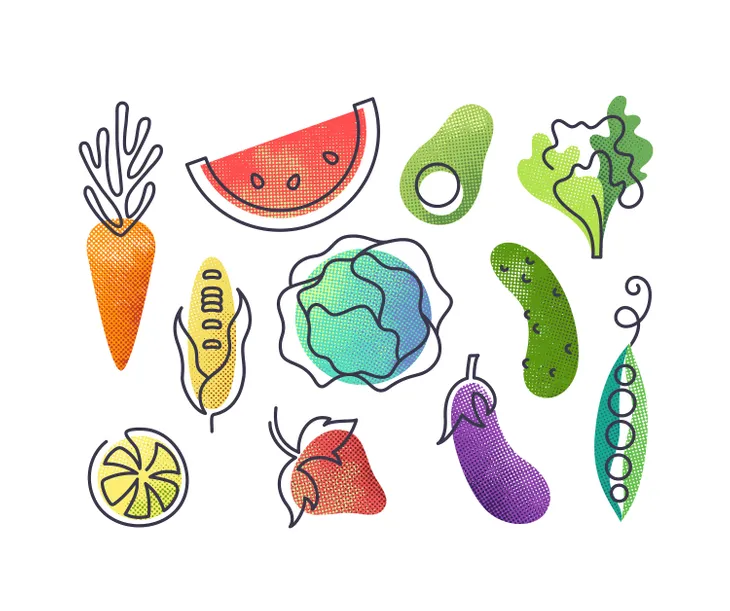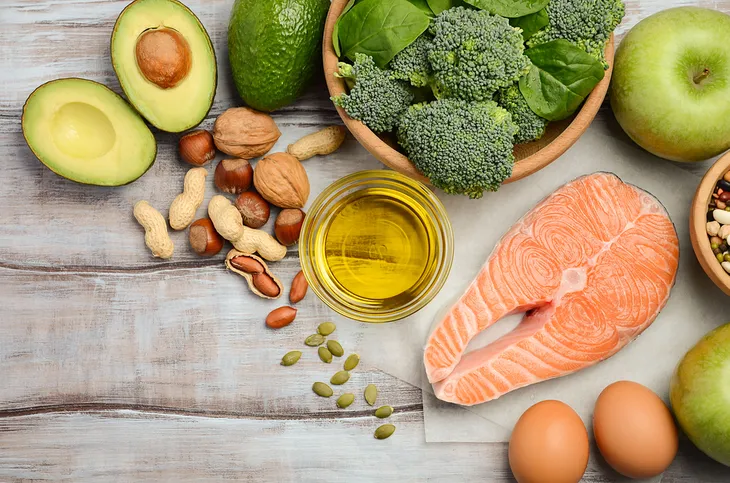Fibromyalgia is a painful condition that affects up to 5-million Americans, according to Healthline. While there are approved drugs meant to treat the condition, there are other things you can do to decrease the symptoms and increase your quality of life.
When it comes to diet changes, it’s not so much about the foods you’re consuming – it’s about the ones to avoid, according to Healthline. “No food, or combination of foods, has been proven to relieve symptoms,” notes the source. But having a “well-rounded diet” can make an improvement, it adds. Other sources suggest keeping a food diary to write down what works and what doesn’t.
Here are six diet tips for sufferers of fibromyalgia…
Eat Fruits and Vegetables
EveryDay Health notes that fruits and vegetables are low in calories and high in fiber, as well as “rich” in antioxidants and phytochemicals. ” That’s good news for those who are, respectively, battling obesity, irritable bowel syndrome (IBS), or autoimmune disorders — all common among fibromyalgia patients,” notes the source.
It also explains that natural foods like fruits and veggies lack the additives (such as preservatives and fibromyalgia) that can make symptoms worse. On that note, trying to avoid artificial additives altogether is a good idea if you suffer from fibromyalgia pain, it adds. “Eating more natural foods is very important.”
Try Going Vegetarian
If you love meat, you might not like this idea too much, but Healthline notes, “There is evidence that eating a vegetarian or vegan diet, which is high in plant antioxidants, might offer some symptom relief.”
The source cites a specific study posted on the U.S. Library of Medicine that shows subjects that consumed a “raw vegetarian diet” (including items such as raw fruits, salads, carrot juice, grains, nuts, seeds) had less pain. ” However, this type of diet is very restrictive, and it’s not for everyone,” it adds.
Avoid Sugary Foods
If you enjoy some sweets after dinner (or at least, or the late afternoon, or at midnight), then you might want to consider cutting back if you experience chronic pain that is associated with fibromyalgia. Your pancreas releases a hormone to break down sugars, and is supposed to regulate glucose in the blood will “typically dramatically worsen pain,” notes an article on Mercola.com.
Aside from processed sweets and chocolates, also be wary of fresh fruit juices, it adds – whole fresh fruit is the better way to consume fruit when it comes to softening pain symptoms. Keep in mind that grains are metabolized in a similar fashion as sugars are, so beware of wheat and gluten in your diet, explains the article.
Cut Out Caffeine
Mercola.com explains that one explanation about the cause of fibromyalgia is that it’s an imbalance of brain chemicals that control mood, and has also been tied to lack of sleep. “The temptation is to artificially and temporarily eliminate feelings of fatigue with stimulants like caffeine, but this approach does more harm than good in the long run,” it explains.
The source explains that the perceived burst of energy after consuming caffeine won’t last very long, and that when it’s actually time to lay your head down, you won’t be able to fall asleep as easily. Caffeine “is no substitute for sleep,” it notes. Now keep in mind that the average American consumes about 3-cups a day.
Eat for Energy
As noted before, sugary and caffeine-filled foods and beverages can give you a burst of energy, but will ultimately cause you more trouble when it comes to fibromyalgia symptoms. They will also cause you to rise and then crash, which is especially not ideal for chronic pain sufferers that are often feeling fatigued to begin with.
Healthline notes long-burning foods to put into your system for sustained energy include almonds, broccoli, beans, oatmeal, and whole-grain breads. Tofu is also mentioned. “These foods will give you more energy to get through your day,” it explains.
Don’t Omit Omega-3
Omega-3 is a “good fat” that is believed to have anti-inflammatory properties. “While omega 3’s may not offer pain relief across the board, they’re a worthy addition to any diet,” explains EveryDay Health.
Two sources of omega-3s are coldwater fish and walnuts, notes the source. You can also find them as supplements, but check with your doctor or pharmacist about the dosage you should be considering to address pain and fatigue symptoms.









